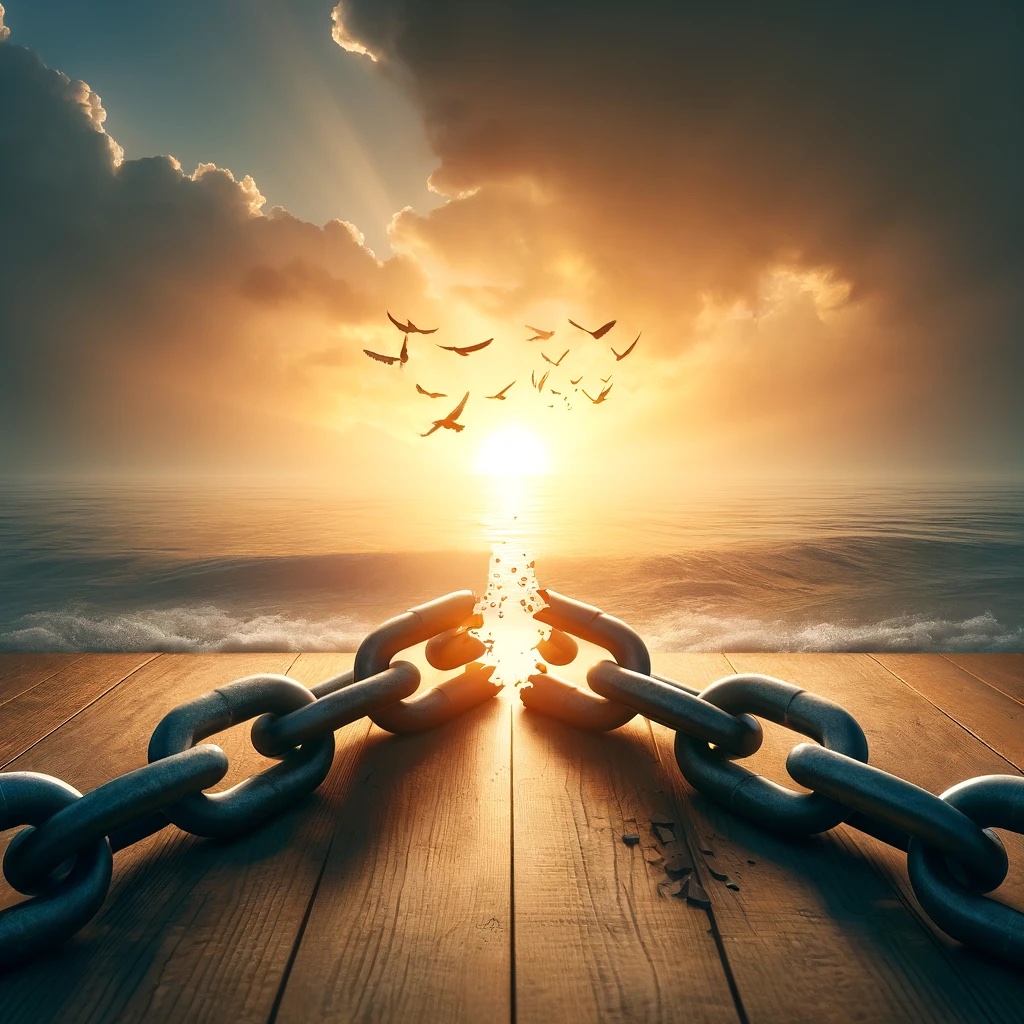My childhood friend once regaled me with a whimsical anecdote from his tender years spent in the charming town of Kalyan, nestled in the verdant landscapes of Maharashtra, India. It was a vivid recollection of childhood antics and monkey capers. The town, bustling with the chatter of townsfolk, was also home to a merry troupe of monkeys, their antics a common sight.
 One playful strategy the local children concocted involved a simple earthen pot and a beloved monkey delicacy: jaggery. They would place a sweet, sticky piece of this sugary treat inside the pot, featuring a narrow opening. Monkeys, drawn by the irresistible aroma of jaggery, would soon find the setup. With a blend of curiosity and greed, a monkey would slip its hand into the pot, curling its fingers around the jaggery. Yet, the trap was set—the clenched fist, now larger with its sweet bounty, refused to slip back through the pot’s narrow throat.
One playful strategy the local children concocted involved a simple earthen pot and a beloved monkey delicacy: jaggery. They would place a sweet, sticky piece of this sugary treat inside the pot, featuring a narrow opening. Monkeys, drawn by the irresistible aroma of jaggery, would soon find the setup. With a blend of curiosity and greed, a monkey would slip its hand into the pot, curling its fingers around the jaggery. Yet, the trap was set—the clenched fist, now larger with its sweet bounty, refused to slip back through the pot’s narrow throat.
As the scene unfolded, other monkeys would gather, their eyes alight with interest and mischief. Nearby, the children would strategically place bamboo sticks, fueling the unfolding drama. The ensnared monkey would face its peers’ ire in a desperate bid for freedom. A chaotic dance would ensue: one monkey, armed with a bamboo, would start to strike at the trapped one, who, in a turn of swift retribution, would grasp a stick with its free hand and retaliate.
The spectacle, a blend of playful cruelty and wild justice, would continue until the trapped monkey, overwhelmed by pain and the force of the strikes, finally relinquished its grip on the jaggery. The pot would come free with a sudden jerk and a chorus of screeches, ending the ordeal. The children, their faces alight with the thrill of the chase and the drama of the escape, watched on, their laughter mingling with the monkeys’ chatters. As adults or anyone with a heart for animals, such a scene might stir a pang of distress amidst the echoes of childhood memories.
The monkey clenching to the jaggery embodies the tightness of anger and the weight of resentment. We hold onto these emotions, believing they grant us power over those who wronged us. But the truth is, this clenched fist imprisons only ourselves. Forgiveness is the most transformative thread in the mosaic of human emotions. It is a courageous act of self-liberation that empowers the forgiver to transcend anger and resentment, leading to profound shifts in mental health and interpersonal dynamics. Forgiveness isn’t about condoning the actions of another; it’s about releasing the poison that festers within us.
 We make forgiveness for other people a tremendous, magnanimous gesture. The act of forgiveness is often elevated to a heroic and noble stature, a gesture that seems larger than life. Yet, this isn’t quite so. Genuine kindness stems from within—it’s about you. It unfolds as a deliberate choice, a practice woven with intention. It demands the bravery to confront your deepest fears and to journey through the searing flames, only to discover the serenity and love that await on the other side—those precious gifts you are rightfully owed.
We make forgiveness for other people a tremendous, magnanimous gesture. The act of forgiveness is often elevated to a heroic and noble stature, a gesture that seems larger than life. Yet, this isn’t quite so. Genuine kindness stems from within—it’s about you. It unfolds as a deliberate choice, a practice woven with intention. It demands the bravery to confront your deepest fears and to journey through the searing flames, only to discover the serenity and love that await on the other side—those precious gifts you are rightfully owed.
Undoubtedly, the wrongs inflicted upon you were undeserved, an unequivocal truth. However, another truth beckons: living beneath your Halo of victimhood confines you. Cast aside this Halo, transcend mere resilience, and embrace resourcefulness. Summon the courage to face your fears and extend forgiveness to yourself as a pivotal first step. This self-embrace paves the way to forgive others, allowing you to stride forward into a life marked by freedom and grace.
Anger allows you to react in a fight or flight situation but does not help you make better decisions.
Neurobiology of Forgiveness
Research[1,2,3] has explored how forgiveness is linked to brain structure and function. Findings suggest that the ability to forgive might be an innate trait, as it is associated with specific brain structures. Additionally, variations in brain metabolism linked to forgiveness indicate that this trait might change over time, influenced by life experiences such as interactions with trustworthy individuals or experiences of betrayal. These experiences can affect how inclined someone is to forgive.
Strengthening Bonds Through Forgiveness
At its core, forgiveness is also a foundational element in building and sustaining strong relationships. It fosters a culture of trust, openness, and mutual respect. Without forgiveness, relationships often become a battlefield where past wrongs overshadow present interactions, creating a cycle of resentment and withdrawal.
Forgiveness sets a different stage—one where mistakes are acknowledged, and growth is embraced. It allows relationships to evolve, becoming more resilient in the face of challenges. In this light, forgiveness is not a sign of weakness but a powerful testament to the strength of a relationship and the commitment of those involved to nurture it.
The Role of Forgiveness in Conflict Resolution and Societal Healing
On a broader scale, forgiveness is instrumental in resolving conflicts and healing societal wounds. History is packed with examples of forgiveness marking turning points in peace processes. Whether in post-conflict reconciliation efforts or in healing the divides within communities, forgiveness acts as the bridge between divided sides, facilitating dialogue and understanding.
Forgiveness in such contexts goes beyond personal healing; it becomes a collective act of renewal. It invites a shift from a narrative of victimization to empowerment, encouraging societies to move forward rather than remain anchored in the past. This does not imply forgetting the injustices or wiping clean the slate of history. Instead, it involves recognizing the pain, learning from it, and consciously choosing a path of collective peace over perpetual strife.
Embracing Forgiveness: A Personal and Collective Journey
 Embracing forgiveness is both a personal and a collective journey. It begins within the confines of one’s heart but has the potential to extend its peace-giving branches far and wide. It requires courage, compassion, and, most importantly, a commitment to one’s well-being and the well-being of others.
Embracing forgiveness is both a personal and a collective journey. It begins within the confines of one’s heart but has the potential to extend its peace-giving branches far and wide. It requires courage, compassion, and, most importantly, a commitment to one’s well-being and the well-being of others.
Without forgiveness, we remain shackled to the shadows of the past. Individually, we are trapped in the thorns of our historical grievances, each piercing with memories of hurt and pain. Collectively, humanity must embrace the art of forgiveness to shatter the relentless cycles of vengeance and strife and blossom anew. This is essential across the divides—whether it be among the Irish Catholics and Protestants, the Hutus and Tutsis, the Palestinians and Israelis, and in numerous other corners of the world where discord reigns.
In Buddhist psychology, forgiveness is perceived as a graceful path to extinguish the flames of suffering and to weave threads of dignity and harmony into the fabric of our existence. Fundamentally, forgiveness is a gift we bestow upon ourselves, a balm for our mental serenity. It serves as a gentle release from the burdensome pain we clutch within.
For anyone at the crossroads of grievance, choosing the path of forgiveness might seem daunting. Yet, the liberation it promises is boundless. It frees us from the heavy chains of bitterness, allowing us to experience life in its fullest, most vibrant hues. Moreover, in a world rampant with conflicts and divisions, forgiveness is the balm that heals wounds and rebuilds bridges. It is undoubtedly one of the most potent legacies we can leave for future generations.
As we navigate the complexities of human relationships and societal dynamics, let us remember the power of forgiveness. It is about peace with the past and building a future replete with hope, harmony, and humanity.
- Li H, Chen Q, Lu J, Qiu J. Brain Structural Bases of Tendency to Forgive: evidence from a young adults sample using voxel-based morphometry. Sci Rep. 2017;7:16856. doi: 10.1038/s41598-017-16868-3.
- Li H, Lu J. The Neural Association between Tendency to Forgive and Spontaneous Brain Activity in Healthy Young Adults. Front Hum Neurosci. 2017;11:561.
- Yamada M, Camerer CF, Fujie S, et al. Neural circuits in the brain that are activated when mitigating criminal sentences. Nat Commun. 2012;3:759.


